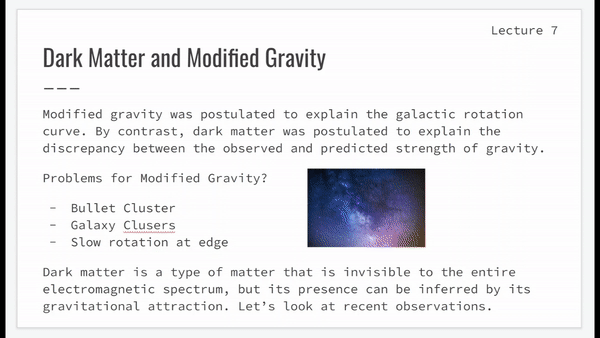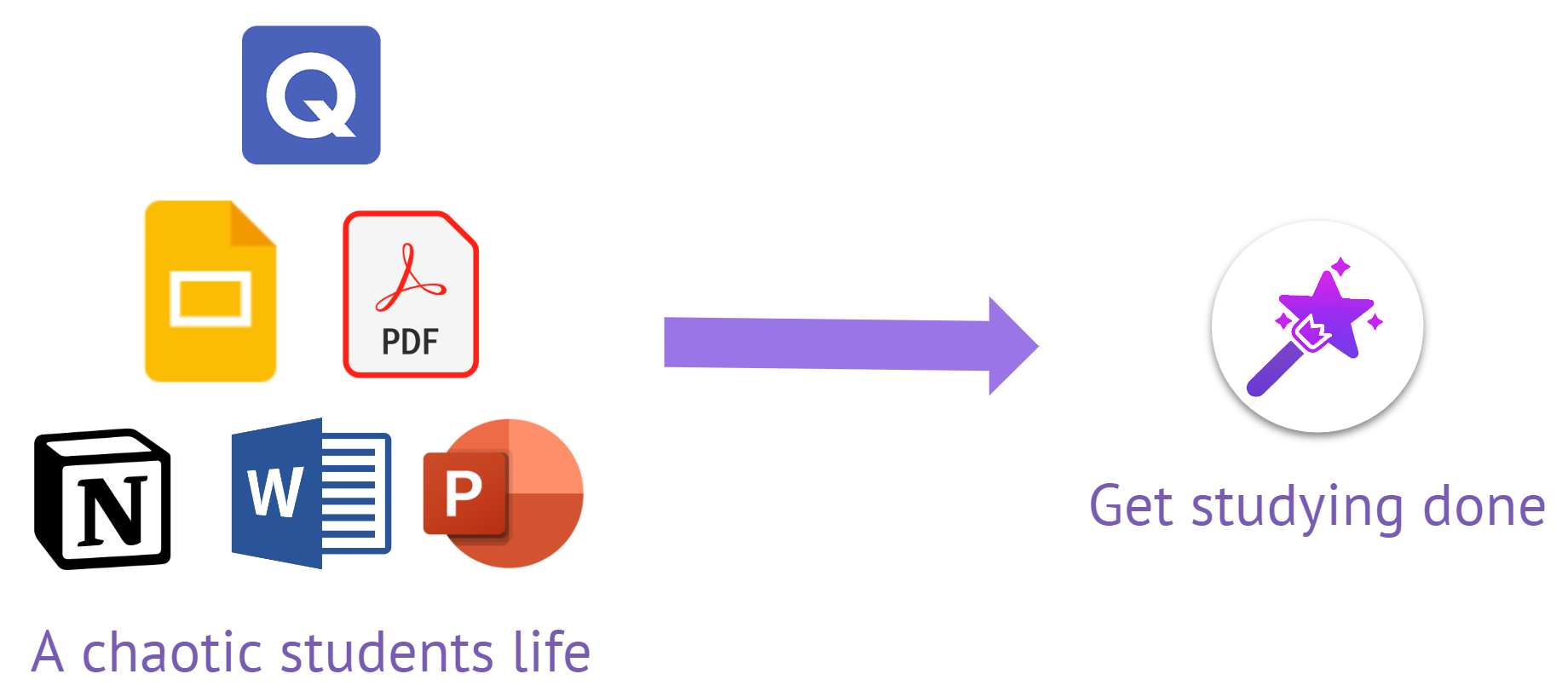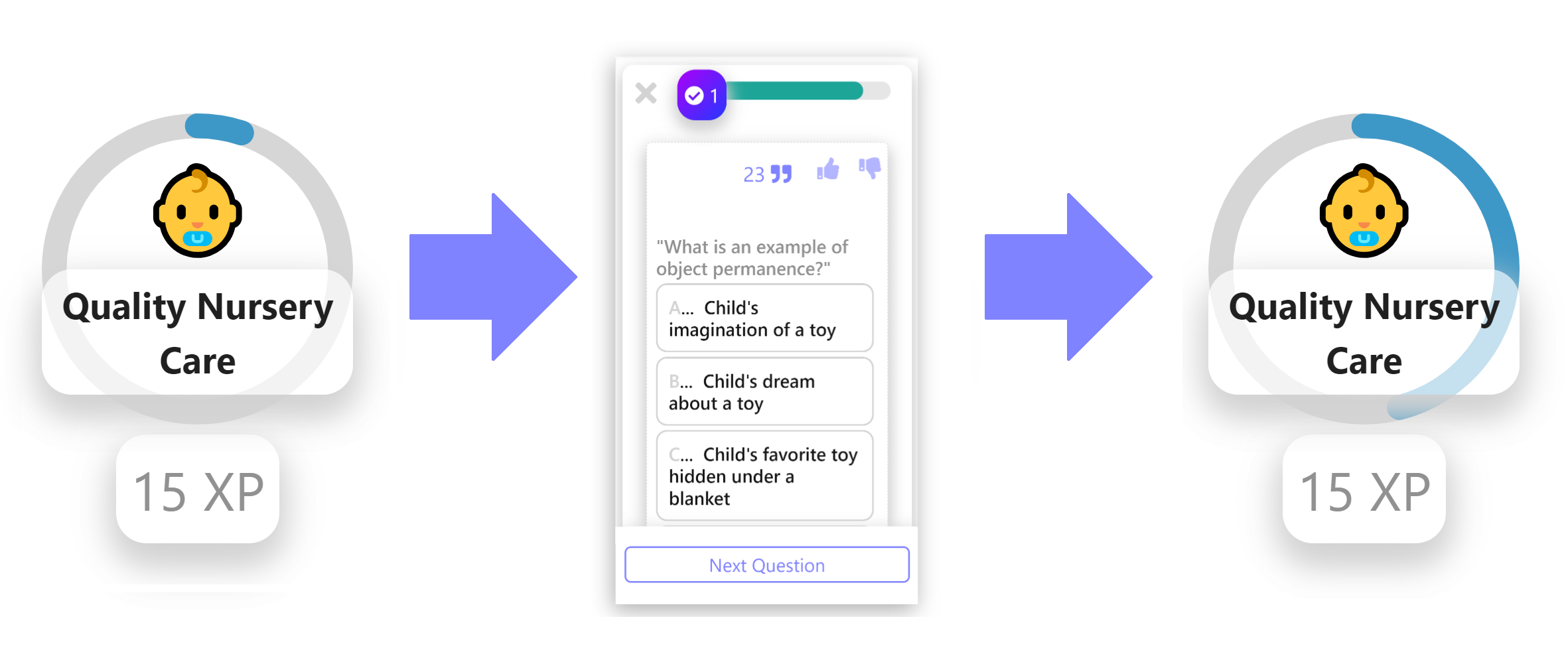
Our key belief
We base our approach to effective learning on analyzing the 6 most effective learning theories.
Everybody has theories, but we put our work into practise:
You can read about 22 ways Revision.ai has led the field with new ways of learning, and AI advancements before ChatGPT
AI Flashcard Maker
Turn study notes into organised
flashcards automatically
Try for free
Get studying done with memorable bitesize exercises
Tailored to you, export flashcards easily





in the United Kingdom


Making flashcards for lectures is tedious. You don't want to spend your evenings cramming.
We make truthful and accurate flashcards for you, ready for our free Learn Mode. So that you can study faster, and relax at night. Jump into AI quizzes, study them with a free Learn mode
The simple overview, and the free learn mode, make studying easy and fun.
You can add your own flashcards too, study in multiple choice question, write or blurt mode, or export generated flashcards to Anki.

The AI uses your slides to help you with context AI-Search all your uploaded lecture slides, video transcripts, audio clips and textbook PDFs for the perfect information for an answer.
Search your PDFs and videos to generate AI answers
"Explain why" for answers of each quiz flashcard
Watch Try on a textbook

Shows subtopics as you master each topic! "Explain why"/Cite Source for each flashcard
Feel confident with indepth questions
Easily see all lecture topics
Watch Our Progress/Coverage Tech



AI groups your flashcards together intelligently
Make progress and unlock bitesized flashcard exercises
All based on the specific topics in your PDF/PPTX/video!
Designed to keep you learning, and enjoying it along the way, with Mastery Learning Loops

Be the first to truly visualise, explore and level up your lecture.
Feel in control, knowing where your knowledge gaps are. Learning paths on the map unlock them.
Learn with flashcards and creating links between concepts and objectives as you unlock the lecture-specific map
Watch Highlight Knowledge Gaps
Get higher grades with Revision.ai
Join thousands of students achieving higher grades with Revision AI
How it works

Your third brain
...we look deeper at your learning
Compared to other flashcard makers, we focus on a system that truly remembers and adjusts based on not just single questions or scores or even your academic success/competencies, but the higher level of knowing your mistakes and targeting resolving them. In our Makers Article, we detail how since 2019 our Computer Science with AI and Psychology graduate team has focused on the real critical processes in learning to develop the optimal flashcard maker and learning tool.
We cover beyond the Testing Effect, Spaced Repetition to look at effective and long-term optimizing with..
How will I study?
Quickly, Easily, On the go. We make studying as quick as 2 seconds to open your app to a scheduled flashcard. Because we understand that getting out of bed to study is half the battle.
Scheduled Flashcard? Like Anki etc?
Yes, we do that too to maximise your learning curve + motivation.
Learning Curve... and Motivation? Why care?
We believe motivation is the greatest determinant of success due to psychology research.
Why can't I plan my studying? Why can't the AI
There is value in planning and feel free to use your own planning apps. For flashcards, we've found Plans don't survive a punch in the face. Until you know what you need to learn next, you can't predict how long it will take. For example if you repeat most cards twice rather than thrice, that means in all future studying you'll probably need more time for those cards too. Our AI uses that prediction to optimise your studying. But to be accurate, it cannot see too far (a trade off). We won't promise you things we don't think work right now, and autoplanning up to your exam/essay due date is one of those. We are happy to be proven wrong. You can manually plan and use estimates.
Award Winning Revision AI Quiz Generator
The Ultimate Learning Experience
Our goal is to deliver the ultimate learning experience, in a practical, evidence-informed way based on a clear goal:
Making your studying more effective and enjoyable.
We've been on this mission since being students in 2019!
Data-driven, backed by science
Revision.ai adapts to your lectures and makes you the best AI flashcards to increase your memory - trained on slides for over 3 years.
Our technology is inspired by the psychology of learning, optimal learning technology, and memory associations with quick feedback. Learn more about why you should use multiple choice questions.
When we make flashcards, we carefully select them to perfectly fit your lecture. The flashcards focus on different stages of learning (familiarising, recall, expression and synthesizing) with spaced repetition to get you higher grades.
Why study with AI flashcards?
Our AI flashcards for science subjects and the organised, high-coverage learning mode we generate for you are more effective than highlighting and watching lectures (Bartlett, 1977, Johnson & Mayer, 2009).
For example, Roediger et al. (2011) identified Ten benefits of active retrieval(using flashcards), which we applied, as design guidance. We are GDPR-compliant, collecting minimal PII, except your learning records.
Exercises make studying feel better
Our tool doesn't just make AI flashcards, it also groups them into bitesize Exercises.
Conquer and feel progress as you complete them!
As you study, you unlock more exercises - motivating you for your exams!

...and this progress will motivate you
At any time you can visually see progress you make on each exercises flashcards
When it comes to using AI for Revision, this is the best way to ensure you cover content and keep on track!

We put careful thought into our design to bring in elements that maximise your learning when we present & make flashcards for you.
Frequently Asked Questions
Is it free?
What's special about Exercises?
How can I plan with Revision.ai?
Will I be able to track progress?
Can Revision.ai adapt to my mistakes and help me overcome misconceptions?
Going above and beyond standard spaced repetition algorithms, we also collect qualitative feedback.
Example If you answer several questions on Cars correctly, but are bad at questions on Motorbikes, Revision.ai will reflect and choose questions to identify your misconceptions, like focusing a question on Wheels.
Once it identifies a possible misconception, it will create questions to overcome the mistake and represent this in the percentage completeness of your lecture!
You can see the systems "Third Brain" score-card and list of your strengths, mistakes and misconceptions in addition to normal progress.
This way, you can jump right into quizzes on your mistake topics, show them or discuss them with others, and reflect yourself on your learning. You can also add manual text input on your own thoughts on your areas of mistakes/reflections, to direct the AI your way too.
One of the brilliant ways Revision.ai helps you be a better student than otherwise is that it can see patterns in things you might not understand.
For example, imagine during a long lecture the following pictures are present, as in Open Stax Biology lectures:
These are regions of the brain, and the region at the back of the brain is important for vision.
If you struggle with answering questions about regions of the brain, but succeed at labeling the visual system, the "Third Brain" will create new text questions asking you to choose the right description for regions in the brain and it will provide you a short synopsis of the regions first to recap them.
So this way, even though the original lecture assumed you knew about Brain Regions - in your case an untrue assumption which held back deeper learning - now, with Revision.ai, you can accomplish that foundational step to build the groundwork for learning about specific regions, or reasoning about how regions interact!
This is the power of the both reflective, learning record and text based analysis that the Third Brain does, when constantly providing a fresh supply of New, Relevant, Answerable questions as you study.
Can the Third Brain system build me up to getting great grades on my exam?
By generating a comprehensive set of questions that cover each part of your slides and keeping a record of your knowledge, the system can constantly provide you fresh, relevant, exam-conditions-like questions as you go up into completing the whole lecture and completing it increasingly accurately as you study.
Until you have consistently covered 80% of the lecture with 80% accuracy, the system always adapts and highlights to show you the next exercise you should study - by doing this, you do not have to think about it or struggle with analysis paralysis - you can just jump into conquering a small part of your lecture one after another to succeed!
The Trophy system (provided only to skilled successful recalls of information from your slides) provides an accurate judgement of passing exams at US college level in our experience. Remember, the contributors to Revision.ai include 6 college graduates, with above average grades, so we know what you need to do to score well on exams!
It is our belief that if you have recently achieved trophies on each exercise in your lecture, within the last 2 weeks before the exam, you will go in as one of the strongest students and get the grade you need. What you need is the discipline and hard work on studying on the run up to that, in the regular months before hand - and we help take a big part of the early and intimidating work by generating all your flashcards/practise questions for you. It feels lighter, and more calm, to study with Revision.ai this way.
What Psychology research informed your approach?
Our founder has a MSc Psychology degree with a focus on learning, as do two of our current/former interns.
We use our knowledge of the subject area to apply several research findings, as detailed in our articles and technically in terms of their implementation here.
Highlights of the research we have applied includes:
- The Testing Effect
- Spaced Repetition
- Summative Feedback research
- Misconception Refutation -
- Progress Gamification
- Mastery and indvidiualised feedback/planning - Blooms research
- Chi & Posners Theories of error types and learning modes
What are the stages of learning on Revision.ai
From there, you study exercises, one by one, gaining progress. The separation into exercises splits your lecture into relevant slides for that topic, and gives you a surmountable amount of questions for each exercise that fits your attention span. By taking them in order, you can familiarize yourself with the lecture, no matter how confusing some parts might be.
As you answer questions to make progress in each exercise, you can ask the AI to explain with context to your lecture:
Each time you study, the AI adapts the cards based on spaced repetition, and other factors. Each time you complete a session, you can view your strengths/weaknesses that session with a knowledge gap report:
Once you are confident, you can use the Mastery mode, where you view slides, and then need to write out what you remember for a blurt/free recall rating from the system.
This "Learning Loop" takes you from a few slides, to a few questions, then to recalling what you know. It's purpose-built to optimize your memory with a mix of easy and hard cognitive work for your brain - and to deliberately connect back to your original lecture with the slides relevant for the topic, while also ensuring that you are recalling information in exam-like conditions, the combination of which ensures you learn the right content (the lecture) in a comprehensive way, in the most effective method/fashion for the exam you need to take. Just stop and think for a second. How good does it feel to know you just accurately recalled most of the content of a topic in your lecture, and correctly answered short questions on it? Wouldn't that give you massive confidence for the exam and put you in flow state? This is the exact reason, as well as difficulty learning diagrams, that we built Revision.ai for Biology!
Then, you gather Trophies for each exercise by accurately free recalling what the lectures say and answering short questions, like in exams!
As you go, the system builds up a teacher-like picture of you, understanding the misconceptions and mistakes you are making, and any patterns you show. By looking at these, you can take rectifying learning, which quickly provides information on the misconception/issue, and then tests you on it.
Your progress is also represented for the whole lecture in the overview, so you can complete each lecture.
What's the evidence that this approach is more effective or advanced than simple spaced repetition?
How does keeping track of my misconceptions help me get better grades?
Misconceptions being resolved is arguably the most effective way to improve academics core in a subject according to Mueller (2008) and following studies.
It requires you to really intrinsically change your thinking patterns, reflect and overcome a hurdle mentally.
What is the purpose of Mastery mode showing my slides for different topics in the lecture?
Our design around the Mastery mode learning loop going "Slides", "Questions", "Blurt" is purposeful. It enables you to tackle a topic comprehensively not just in terms of looking at all the relevant content, but testing your knowledge at different levels of difficulty to establish what you know, and in doing so, improving your knowledge of the topic.
See here is the thing. I actually quite like listening to lectures, especially the first time. They are interesting! The highlights are great, and memorable-by-default to me. But the bits inbetween. The foundations. The information on the methods used, related/foundational studies - or the diagrams - learning those parts helps your career, your future, your academic understanding and going on to do research. But it does not stick out, and will not stick in your brain, unless you study those parts purposefully.
Now you can try the traditional approach to make flashcards covering all parts and that's fine, but it is nowhere near as sophtiscated or effective as using the right learning techniques. It's also harder to not feel a daunting sense of fear that way - you can see the number you have studied correctly sure, but it's hard to study 300 cards. Every wrong one feels a bit worrying. The difference with our seperation of the topics into exercises and then taking Mastery mode for each of them is that you can consolidate your motivation, focus your attention, and show yourself as you apply effecitve learning methods that you can learn this topic, and can succeed. That's the feeling we want you to have and the rationale behind why the learning loop - informed by research - is built how it is.
How does the AI motivate me?
References
Roediger, H. L., & Karpicke, J. D. (2006). Test-Enhanced Learning: Taking Memory Tests Improves Long-Term Retention. Psychological Science, 17(3), 249–255.
Bartlett, J. C. (1977). Effects of immediate testing on delayed retrieval: Search and recovery operations with four types of cue. Journal of Experimental Psychology: Human Learning and Memory, 3(6), 719.
Johnson, C. I., & Mayer, R. E. (2009). A testing effect with multimedia learning. Journal of Educational Psychology, 101(3).
Roediger III, H. L., Putnam, A. L., & Smith, M. A. (2011). Ten benefits of testing and their applications to educational practice. In Psychology of learning and motivation (Vol. 55, pp. 1-36). Academic Press.

